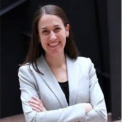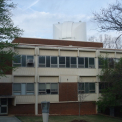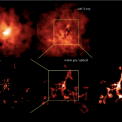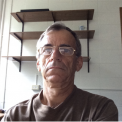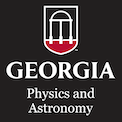One of the legacy results of the Hubble Space Telescope is the discovery that supermassive black holes inhabit the centers of all massive galaxies, and these black holes appear to have a symbiotic relationship with their host galaxies. One of the keys to understanding this relationship involves constraining the masses of the black holes. However, black hole mass measurements are difficult to achieve because they require direct observations of the invisible black hole's gravitational influence on luminous tracers (stars or gas). A few different techniques have been developed over the last 25 years to meet this goal. One technique, known as reverberation mapping, is exclusively applicable to active black holes but may be used for even the most distant quasars in our universe, providing a way to study black holes across history. However, the most widely used technique in the local universe requires exquisite spatial resolution and is based on observations of the bulk motions of stars deep in the nucleus of a (usually inactive) galaxy. I will introduce these techniques and describe our ongoing program to identify a small sample of galaxies where multiple black hole mass techniques can be applied to each galaxy. This effort includes our recently-approved JWST ERS program, as well as programs carried out on multiple moderate- and large-aperture ground-based telescopes. The results of this work will allow us to directly test these independent mass measurement techniques against each other, investigating whether the masses of all black holes, both near and far, are on the same scale and thus having implications for our understanding of the evolution of galaxies across the ~13 billion year history of the universe.
Events Calendar View
-
Departmental Colloquium
Feb 7, 2019
Black Hole Masses in Active Galaxies
-
Observatory Open House
Feb 8, 2019
Observatory Viewing
We will be having our first public viewing for this Spring on February 8, 2019.
Because of the limited space in the dome, you must have a reservation to come to this showing. We will begin taking reservations for this viewing on Friday, February 1st at 1:00pm with our online reservation system.
The observatory is located at the top of the Physics building. To get to the observatory take the elevator to the 4th floor. A guide will meet you on the 4th floor and direct your group to the stairway that leads to the observatory. As the weather can be unpredictable, we might not know whether a viewing will be possible until shortly before the event begins.
If you need more information please call 706-542-2485.
Related: The UGA Observatory Schedule
-
Special Colloquium
Feb 13, 2019
Raining on Galaxies and Black Holes: Unifying the Micro and Macro Properties of Feeding and Feedback
Feeding and feedback tied to supermassive black holes (SMBHs) play central role in the cosmic evolution of galaxies, groups, and clusters of galaxies. The self-regulated SMBH feeding-feedback cycle is matter of intense debate. I review key results of our numerical campaign to unveil how SMBHs are tightly coupled to the multiphase gaseous halos, linking the inner gravitational radius to the large Mpc scale and vice versa. Massively parallel magnetohydrodynamic simulations show the turbulent plasma halo radiatively cools via a top-down multiphase condensation rain of warm filaments and molecular clouds. The multiphase precipitation inherits the hot halo kinematics and thermodynamics, ultimately establishing a 'cosmic weather'. In the nuclear region, the recurrent collisions between the clouds and filaments promote angular momentum cancellation and boost the SMBH accretion rate through a mechanism known as Chaotic Cold Accretion (CCA). The CCA rapid variability triggers powerful black-hole outflows, which quench the macro cooling flow and star formation, while preserving the atmospheres of galaxies, groups, and clusters in global thermal equilibrium throughout cosmic time. I highlight the key imprints of black-hole feedback and feeding, such as bubbles, shocks, turbulence, and condensed structures, with a critical eye toward observational concordance, including the X-ray plasma, optical filaments, and radio molecular clouds.
-
Departmental Colloquium
Feb 14, 2019
Unraveling Multicritical Phenomena in Lattice Models
The "era of phase transitions" began with the discovery of the heat capacity and latent heat in the eighteenth century. A half century after that, critical phenomena emerged and had its heyday with the critical opalescence seen in carbon dioxide. It took, however, another 100 years to obtain an explanation of the microscopic ingredients underlying these intriguing phenomena. This achievement lead to Wilson's noble prize. Possible generalizations, sometimes not so easily reproduced in experiments, could be foreseen from theoretical grounds, leading to the discovery of multicritical behavior. We will present some models defined on regular lattices, mainly magnetic spin systems and geometrical polymers, which exhibit a variety of multicritical phenomena that can be studied via computer simulations as well as theoretical approaches.
-
Workshop
Feb 18, 2019
The 32nd Annual CSP Workshop: Recent Developments in Computer Simulational Studies in Condensed Matter Physics
Workshop details are located on the CSP Annual Workshop Site.
-
Departmental Colloquium
Feb 21, 2019
Quantum Chemistry and Computer Science: A Historical Account of Their Tightly Coupled Parallel Development
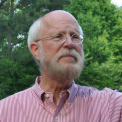
Guest: Prof. Henry Schaefer, UGA Department of Chemistry
Thursday, February 21, 2019 4:00 pm - 5:00 pm
Location: Physics Auditorium (202)TBD
Page 90 of 121, showing 6 records out of 723 total, starting on record 535, ending on 540


